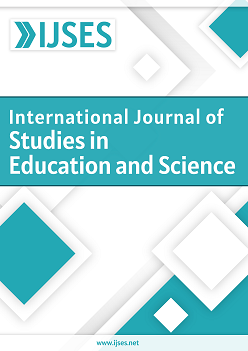Prospects for Raising Critical Thinking Competency through Project-Based Learning in EFL Classroom
DOI:
https://doi.org/10.46328/ijses.21Keywords:
Cognitive skills, Project group, Cooperation, EFL context, Critical thinkingAbstract
The last decade has witnessed a drastic change in technology and rapid communication. Therefore, rapid changes in the process of education have been evident; as technology has been used by students to solve complex issues and challenges through authentic tasks and learning activities which can reflect their real life rather than classroom-based tasks. This can enable them to play diverse roles and promote their thinking skills along with creative, judgmental, and critical thinking skills, social communication, collaboration, creativity and innovation. Hence, increasing students’ critical thinking abilities can be promoted through cooperative learning in which students can create concrete results to represent what they have learned. This study would like to be a part of investigating the role of using project-based instruction in raising students’ critical thinking skills in an EFL classroom. To further up the study, the researcher has opted for a classroom observation which aimed at assessing the level of students’ ability to perform tasks through solving problems, analyzing, inferring, and evaluating. The findings would like to affirm that students who have been directed through project groups have been exposed to a favorable learning environment which enabled them to think critically by reflecting on their own learning and draw on personal knowledge autonomously.References
Rogti, M. (2021). Prospects for raising critical thinking competency through project-based learning in EFL classroom. International Journal of Studies in Education and Science (IJSES), 2(1), 46-58.
Downloads
Published
Issue
Section
License
Articles may be used for research, teaching, and private study purposes. Authors alone are responsible for the contents of their articles. The journal owns the copyright of the articles. The publisher shall not be liable for any loss, actions, claims, proceedings, demand, or costs or damages whatsoever or howsoever caused arising directly or indirectly in connection with or arising out of the use of the research material.
The author(s) of a manuscript agree that if the manuscript is accepted for publication in the International Journal of Studies in Education and Science (IJSES), the published article will be copyrighted using a Creative Commons “Attribution 4.0 International” license. This license allows others to freely copy, distribute, and display the copyrighted work, and derivative works based upon it, under certain specified conditions.
Authors are responsible for obtaining written permission to include any images or artwork for which they do not hold copyright in their articles, or to adapt any such images or artwork for inclusion in their articles. The copyright holder must be made explicitly aware that the image(s) or artwork will be made freely available online as part of the article under a Creative Commons “Attribution 4.0 International” license.

This work is licensed under a Creative Commons Attribution-NonCommercial-ShareAlike 4.0 International License.





